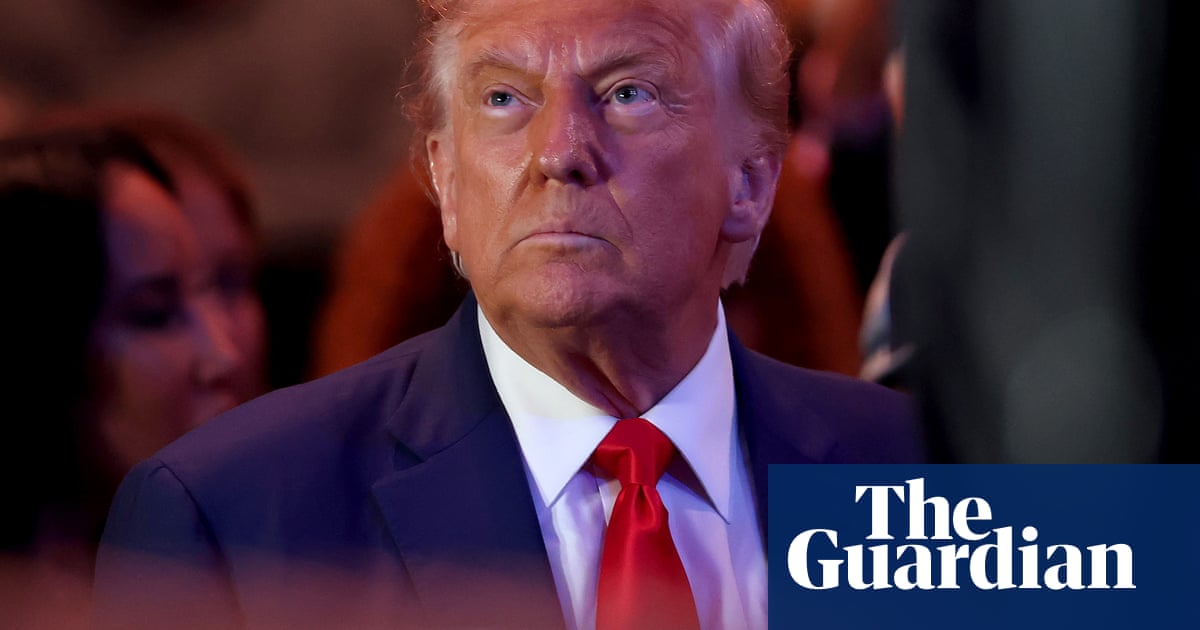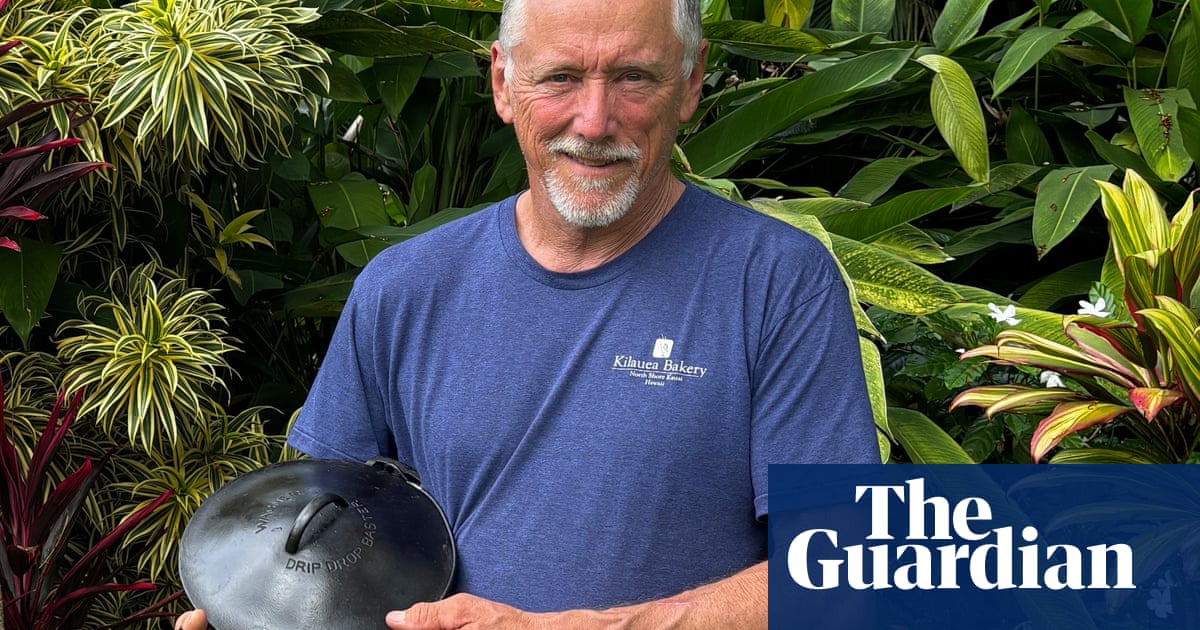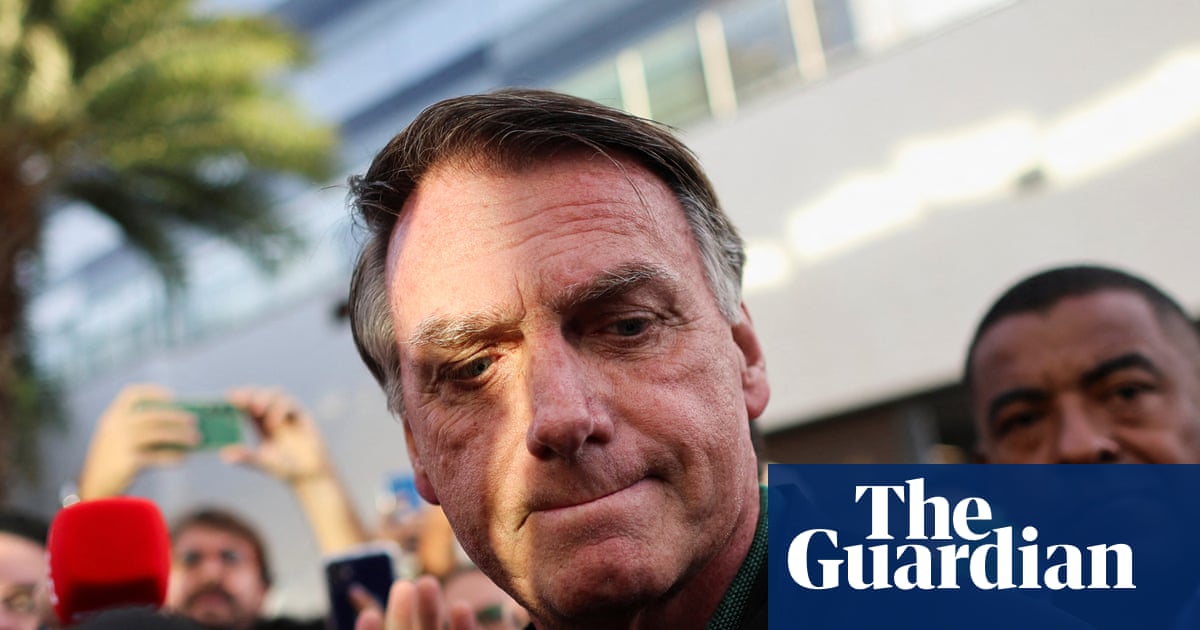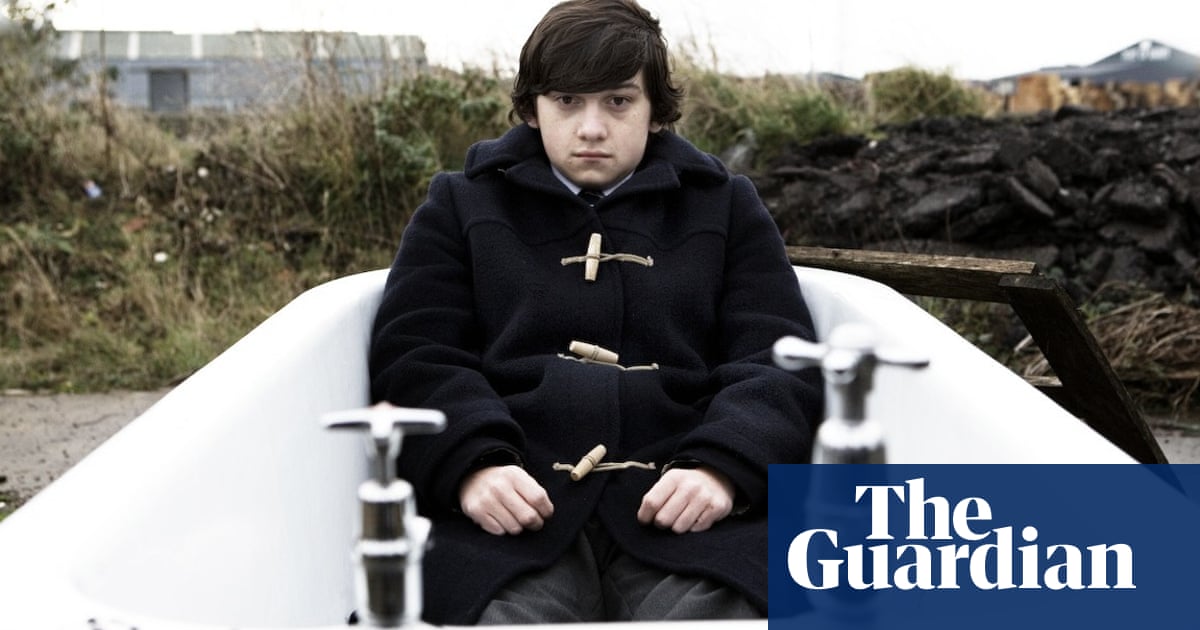The conservative opposition has won the most votes in Germany’s general election, but a dramatic surge by the far-right Alternative für Deutschland (AfD) is likely to complicate the formation of a government to help spearhead a European response to growing global threats.
The CDU/CSU candidate, Friedrich Merz, was preparing on Sunday night to try to form a ruling coalition after clinching almost 29% of the vote from a high turnout.
“I’d like to express my respect for our political rivals,” he said, referring to fellow centrists. “It was a very tough campaign.
“Now we need to talk to each other and as quickly as possible form a government for Germany that can take action so that we can do the right thing at home, be present again in Europe and make sure the world sees that Germany again has a reliable government.”
The AfD, buoyed by anger about immigration, violent crime and high energy costs, got about 21% of the vote – finishing second and nearly doubling its result at the last election in 2021.
The party’s jubilant chancellor candidate and co-leader, Alice Weidel, cheered the outcome with AfD officials including the extremist firebrand Björn Höcke, who has been convicted of using the banned Nazi slogan “Alles für Deutschland” (Everything for Germany) in campaign speeches.
“This is a historic success for us – our best result ever,” Weidel told the broadcaster ARD. “We extend our hand to offer cooperation with the CDU. Otherwise change won’t be possible in Germany.”
All the mainstream parties, however, have pledged to maintain a “firewall” barring formal cooperation with the anti-migrant, pro-Kremlin AfD, which attracted high-profile endorsements from Donald Trump’s confidant, Elon Musk, and the US vice-president, JD Vance, during the short, intense campaign.
Trump hailed the election’s outcome. “Much like the USA, the people of Germany got tired of the no-common-sense agenda, especially on energy and immigration,” he wrote in a post on Truth Social. “This is a great day for Germany.”
But Merz struck a blunt tone, saying Trump had made it “clear that [his] government is fairly indifferent to Europe’s fate” and that Germany would have to wait to see “whether we will still be able to speak about Nato in its current form” when the alliance meets for its next summit in June.
“For me, the absolute priority will be to strengthen Europe as quickly as possible so that, step by step, we can really achieve independence from the USA” in defence matters, Merz said.
He said he had not given up hope that Ukraine would be included in any negotiations with Russia on its future, perhaps with the “intervention of the US Congress” on Kyiv’s behalf against any attempt at exclusion by Trump.
British prime minister Keir Starmer congratulated Merz and welcomed the chance to “enhance our joint security”. “I look forward to working with the new government to deepen our already strong relationship, enhance our joint security and deliver growth for both our countries,” Starmer posted on X.
French president Emmanuel Macron offered his congratulations, saying: “We are more determined than ever to achieve great things together for France and Germany and work towards a strong and sovereign Europe. In this time of uncertainty, we are united to face the major challenges of the world and our continent.”
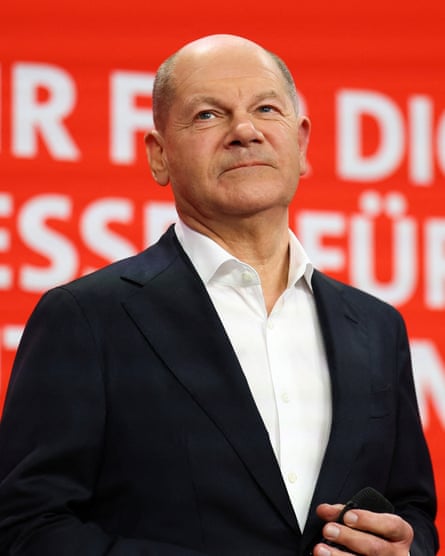
The incumbent chancellor, Olaf Scholz, turned in the worst performance for his Social Democrats since the second world war, with about 16%. He had led a fractious three-way government until it collapsed in November over a dispute on spending priorities – just hours after Trump’s re-election – triggering the poll seven months ahead of schedule.
A chastened Scholz called it a “bitter result” and a “defeat” but struck a defiant tone on the strength of the far right, saying it was “something that we can never simply accept”.
Voters also punished Scholz’s junior partners, the Greens, who slipped three points to 11.6%, and the pro-business Free Democrats, who failed to clear the 5% hurdle to representation in parliament.
The far-left Linke drew more than 8% after a remarkable late-campaign comeback, while a new populist left-conservative party, the Sahra Wagenknecht Alliance, fizzled out after strong showings in European and state elections last year to tally just below 5%.
Merz’s conservatives, who fell far short of a majority, will need to seek an alliance to govern, with the goal of having a new administration in place by Easter. His most likely coalition partner is seen as the Social Democrats; together they should have just enough to form a majority, according to a Spiegel projection of seats.
Weidel said a three-way coalition government under Merz would be “unstable” and predicted it would “not survive four years”, at which point the AfD would be waiting in the wings.
The AfD will become the biggest opposition party even while it is under surveillance by security authorities as a suspected extremist force. It has grown steadily more radical since its launch by Eurosceptic professors 12 years ago.

It has also taken direct aim at Germany’s culture of atonement for the Holocaust. During a televised debate last weekend, Weidel explicitly refused to distance herself from remarks by one of the AfD’s founders calling the Nazi period “no more than a speck of bird poo in over 1,000 years of successful history”.
Merz, a sharp-tempered corporate lawyer and veteran MP with no experience leading a government, will face a towering in-tray as chancellor, a position he has chased for decades.
Jump-starting the sputtering economy, grappling with the breakdown in transatlantic relations under Trump and forging a path forward for besieged Ukraine are just a few of the challenges facing Germany, as Europe seeks stronger leadership in a more volatile world.
The news weekly Die Zeit said given the new global realities, Merz was now facing “a mountain of problems of mythical proportions”.
The mood of the campaign was markedly grimmer than usual, analysts observed, with a sense that the rise of the AfD was keeping the focus on immigration at the expense of other pressing issues such as soaring housing costs and the climate crisis.
Merz did not mention the AfD’s strong result as he addressed his own party faithful, but took a more conciliatory tone with left-leaning opponents than he had in recent days.
To the voters, he added: “Thank you for the trust you have placed in us and also in me personally – I understand the responsibility and the scope of the task ahead of me and I will face it with the greatest respect. I know it won’t be easy.”
A series of deadly attacks with suspects from migrant backgrounds gave the AfD’s Weidel grist for her calls for radical changes to border policy, including mass deportation of immigrants and German citizens deemed poorly integrated, keeping Merz, in particular, struggling to outflank her.
The latest assault came on Friday, when a Spanish tourist was stabbed at Berlin’s Holocaust memorial, allegedly by a 19-year-old Syrian refugee who prosecutors said planned to kill Jews.
“Migration dominated the campaign and going forward, the new government will have to find policies that comply with German law and don’t undermine the EU, which is going to be a huge challenge,” the political scientist Aiko Wagner of Berlin’s Free University told the Guardian.
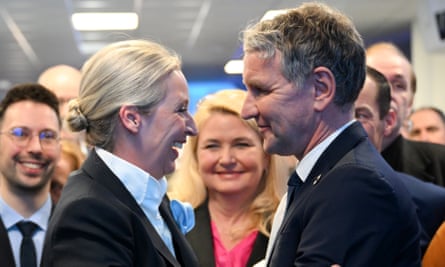
“But the biggest challenge of all is going to be forming a stable coalition that also has the strength to cut the AfD down to size.”
Exit polls showed the AfD did well among younger voters, winning in the 25-34 age bracket with 22%, ahead of CDU/CSU at 18%, and the Greens and Die Linke at 16% each. Merz’s conservatives ceded legions of support to the AfD compared to four years ago, while the SPD saw heavy losses to the far right among the working class.
At this month’s Munich security conference, Vance denounced the “firewall” against the AfD as undemocratic in a brazen intervention into the campaign. His remarks drew a strong rebuke from Merz, who pledged to bar the far right from any government he leads.
Merz has offered an action plan to revive the German economy, the world’s third largest, by cutting corporate taxes while expressing openness to reforming the strict “debt brake” that limits federal government annual borrowing to 0.35% of GDP.
But any policy initiatives will have to be agreed by potential partners in what are expected to be protracted coalition talks.

 3 months ago
47
3 months ago
47

